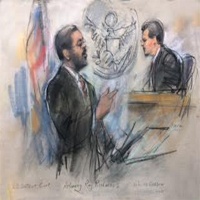Hamtramck Felony Lawyer, Michigan
Sponsored Law Firm
-
 x
x

Click For More Info:
-
Richards & Associates, PLLC
200 East Big Beaver Road Troy, MI 48083» view mapCriminal Defense Accomplished Criminal Defense Attorney
If you face criminal charges, you deserve an experienced defense lawyer who has a reputation for winning the tough cases.
800-844-5250
Christopher Wayne Quinn II
✓ VERIFIEDFelony, DUI-DWI, Misdemeanor, Traffic, Bankruptcy
Criminal Defense Attorney Handeling Felony and Misdemeanor Cases
At the law offices of Quinn and associates our motto is knowledge, excellence, and determination. The professionals at The Law Offices of Quinn & Asso... (more)
Brent Jaffe
Criminal, DUI-DWI, Misdemeanor, Felony, Traffic
Upon passing the bar Attorney Brent Jaffe joined his father's firm to form Jaffe Law Group. "I was drawn to the practice of law because this professio... (more)
Marc J. Gazdecki
Traffic, Wills & Probate, Felony, Personal Injury
Status: In Good Standing Licensed: 32 Years
Robert S. Gold
DUI-DWI, Felony, Misdemeanor, Civil & Human Rights, DUI-DWI
Status: In Good Standing Licensed: 56 Years
Elizabeth Ann Taylor Dornik
Family Law, Felony, Criminal, Business
Status: In Good Standing Licensed: 13 Years
Maurice Davis
Criminal, Felony, DUI-DWI, Misdemeanor, Traffic
Status: In Good Standing Licensed: 15 Years
FREE CONSULTATION
CONTACT Ray Richards Troy, MI
Ray Richards Troy, MI AboutRichards & Associates, PLLC
AboutRichards & Associates, PLLC Practice AreasSpecializations
Practice AreasSpecializations


